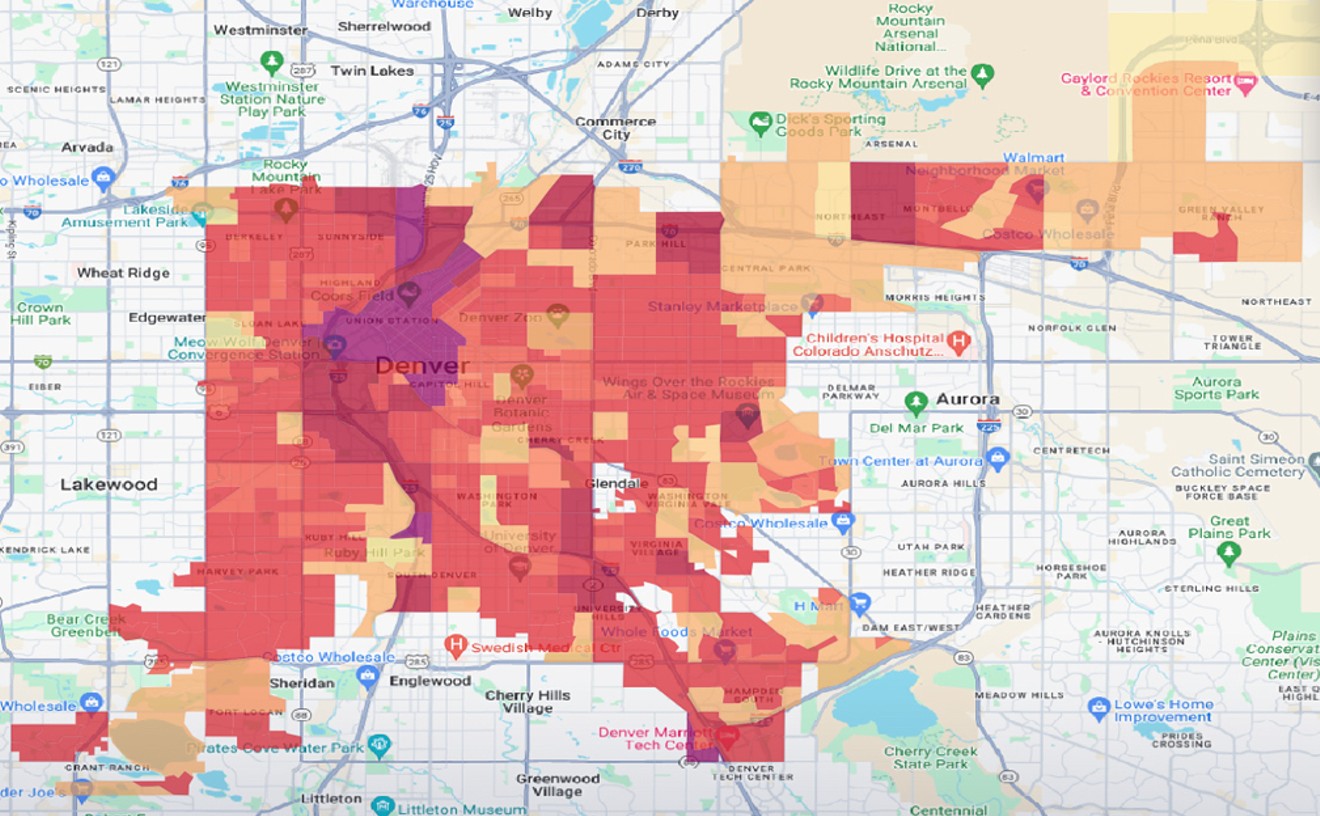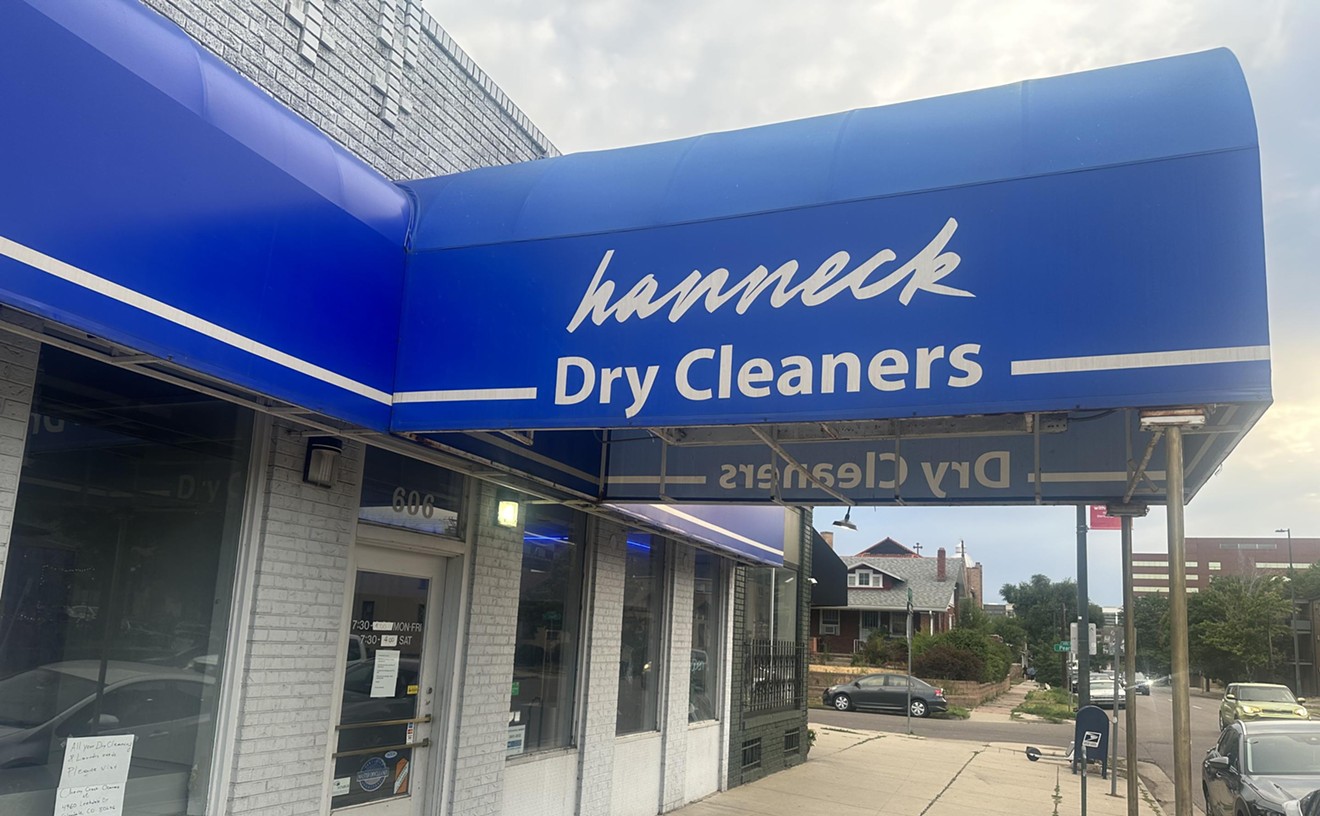Kratom, a popular herbal substance of Southeast Asian origin, is prohibited for human consumption in Denver and has been the subject of numerous health warnings from the federal Food and Drug Administration. But the war on kratom seemed to have stopped shy of a full-scale importation ban.
Now, however, the battle seems to have reached a new stage. Nicholas Moodley, owner of the Denver-based business called Kratom Cafe USA, reveals that 540 kilos of kratom he ordered were seized by the FDA and the U.S. Customs and Border Protection agency and have been held for months, with no resolution in sight.
"I think this is nothing short of government overreach and a violation of my rights, which is currently taking a toll on my business," Moodley notes.
Kratom, referred to in the scientific community as Mitragyna speciosa, isn't new. The plant has been used medically for centuries in areas where it's indigenous, including Thailand and Indonesia, and in the West, it's been employed since the 1980s as a pain reliever and aid in kicking addictions to opioids and even alcohol. But in 2016, the FDA moved to place kratom on its list of Schedule I narcotics alongside heroin based on reports that it, too, had addictive qualities and had been linked to numerous deaths.
Advocates of kratom countered that the fatalities all involved additional substances, making it difficult if not impossible to determine what role, if any, the herb played. They also suggested that without it, many users would get hooked on opioids again.
In the end, the feds backed off a Schedule I designation for kratom, but they've continued to criticize its effects on a regular basis. Such invective led to the action taken by Denver authorities, who required that any kratom for sale in the city be labeled "not for human consumption."
In a November 2017 interview with Westword, Moodley bashed this move based in part on his personal story. He told us he'd become dependent on opioids because of chronic pain he suffered as a result of his work as a roofer, and he credited kratom with both alleviating his agony and helping him kick a much more damaging habit.
But as the FDA tightened its restrictions on the herb over the past year or so, the branding Moodley deploys on his website has changed dramatically. The answer to the question "What is kratom used for?" reads, "Aromatherapy and...making candles." And the "benefits" section consists of the following disclaimer: "We make no claims that kratom cures, prevents or treats any disease or ailment. Keep this product out of the reach of children. Kratom is not a dietary supplement, but a precise amount of an ingredient sold as a raw materials and/or bulk herbs. All information provided has not been evaluated by the FDA, and all kratom products on this site are sold for horticultural, educational and scientific use."
Nonetheless, the FDA's refusal action in regard to the 540 kilos, which were detained on November 30, 2018, refers to kratom as an "unsafe dietary ingredient."
"That's what the FDA considers it," Moodley says, "and they say that if it's sold as a dietary supplement, they can legally detain it because it's being represented or marketed incorrectly. But my company is about candles. In Denver County, you have to put a sticker on it saying it's not for consumption and that there are risks. Outside the county, if somebody wants to use it for ingestion, they can. But we're not advertising it for human consumption. We've been following all the guidelines, but the FDA is still detaining it as if we've done something illegal. That's what makes it so frustrating."
Moodley's company isn't the only one to be given such treatment. "I've talked to buddies in the business, and they say they've been getting shipments seized intermittently. So I know it's not an isolated incident. It's happening continuously and across the board."
At this writing, the kratom remains in government custody, with no end in sight. Moodley's attorney has been in contact with the various agencies involved, but he believes "they're just holding all the shipments in the hope that we give in. And if I take this to court, they've got unlimited amounts of money, and it will cost me $30,000 or $40,000. And I'm just a small company trying to stay in business."
[
{
"name": "Air - MediumRectangle - Inline Content - Mobile Display Size",
"component": "12017618",
"insertPoint": "2",
"requiredCountToDisplay": "2",
"watchElement": ".fdn-content-body",
"astAdList": [
{
"adType": "rectangle",
"displayTargets": "mobile"
}
]
},{
"name": "Editor Picks",
"component": "17242653",
"insertPoint": "4",
"requiredCountToDisplay": "1",
"watchElement": ".fdn-content-body",
"astAdList": [
{
"adType": "rectangle",
"displayTargets": "desktop|tablet"
},{
"adType": "rectangle",
"displayTargets": "desktop|tablet|mobile"
}
]
},{
"name": "Inline Links",
"component": "18838239",
"insertPoint": "8th",
"startingPoint": 8,
"requiredCountToDisplay": "7",
"maxInsertions": 25
},{
"name": "Air - MediumRectangle - Combo - Inline Content",
"component": "17261320",
"insertPoint": "8th",
"startingPoint": 8,
"requiredCountToDisplay": "7",
"maxInsertions": 25,
"watchElement": ".fdn-content-body",
"astAdList": [
{
"adType": "rectangle",
"displayTargets": "desktop|tablet"
},{
"adType": "rectangle",
"displayTargets": "desktop|tablet|mobile"
}
]
},{
"name": "Inline Links",
"component": "18838239",
"insertPoint": "8th",
"startingPoint": 12,
"requiredCountToDisplay": "11",
"maxInsertions": 25
},{
"name": "Air - Leaderboard Tower - Combo - Inline Content",
"component": "17261321",
"insertPoint": "8th",
"startingPoint": 12,
"requiredCountToDisplay": "11",
"maxInsertions": 25,
"watchElement": ".fdn-content-body",
"astAdList": [
{
"adType": "leaderboardInlineContent",
"displayTargets": "desktop|tablet"
},{
"adType": "tower",
"displayTargets": "mobile"
}
]
}
]














